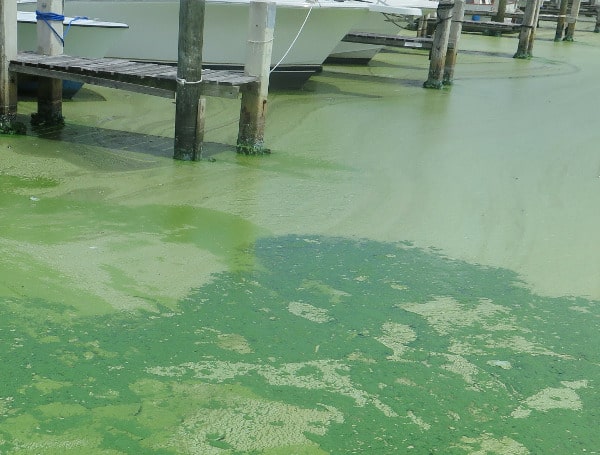
POLK COUNTY, Fla. – The Florida Department of Health in Polk County (DOH-Polk) is warning the public about a harmful blue-green algae bloom in the South Central area of Lake Hancock.
Recent water samples taken on June 11th, 2024 confirmed the presence of toxins, prompting the health alert.
Residents and visitors are advised to take the following precautions:
- Avoid direct contact: Do not swim, wade, or use personal watercrafts in areas with visible blooms.
- Wash thoroughly: If you come into contact with algae or discolored water, wash your skin and clothing with soap and water immediately.
- Protect your pets: Keep animals away from the affected water as it can be harmful or even fatal to them. Provide alternative drinking water sources for pets and livestock.
- Do not use for cooking: Do not use the water for cooking or washing dishes, as boiling does not eliminate the toxins.
- Safely consume fish: Eating fillets from healthy fish caught in the lake is safe, but rinse them thoroughly with tap or bottled water, discard the guts, and cook thoroughly.
- Avoid shellfish: Do not eat shellfish from the affected area.
Read: Florida DEP, South Korean Research Agency To Share Info On Harmful Algal Blooms
What are blue-green algae?
Blue-green algae, also known as cyanobacteria, are a type of bacteria common in Florida’s freshwater environments. Blooms occur when rapid algae growth discolors the water and often produces floating mats with unpleasant odors. They can appear as scum, foam, or paint on the water’s surface in various colors.
Factors contributing to blue-green algae blooms include sunny days, warm temperatures, still water, and excess nutrients. While blooms can occur year-round, they are more frequent in summer and fall.
Why are blue-green algae harmful?
Some types of blue-green algae produce toxins that can harm humans, pets, fish, and other aquatic life. Even at low concentrations, these toxins can pose risks, particularly for sensitive individuals like children, the elderly, and those with compromised immune systems.
Stay Informed and Report Issues
For the latest information on Florida’s water quality and public health notifications regarding harmful algae blooms, visit Protecting Florida Together. You can also subscribe to receive updates on water quality changes in your area.
To report algae blooms, contact the Florida Department of Environmental Protection (DEP) online or at 1-855-305-3903. If you suspect health impacts from exposure, call the Florida Poison Information Center at 800-222-1222. Report concerns about sick or dead animals to your veterinarian or the Florida Fish and Wildlife Conservation Commission at 800-636-0511.
Help support the Tampa Free Press by making any small donation by clicking here.
Android Users, Click To Download The Tampa Free Press App And Never Miss A Story. Follow Us On Facebook and Twitter. Sign up for our free newsletter.

